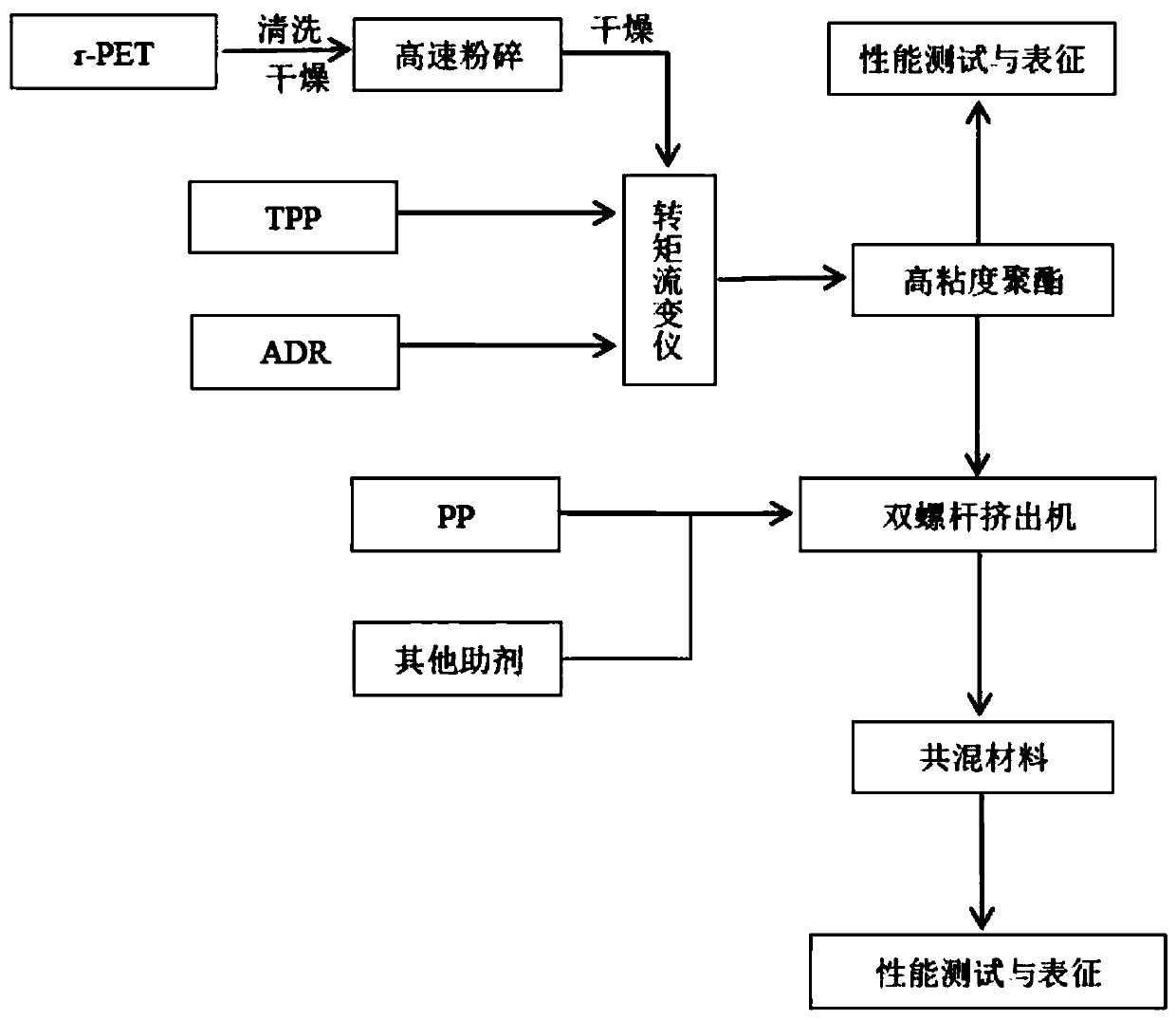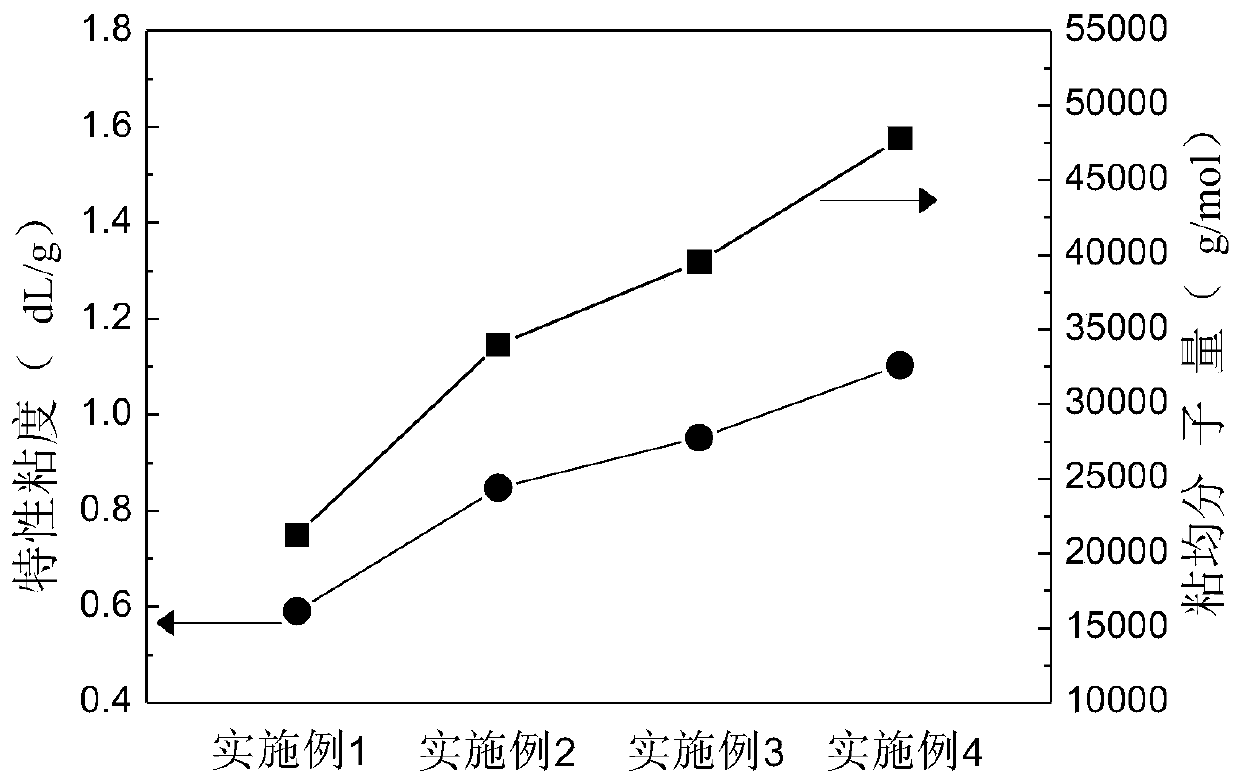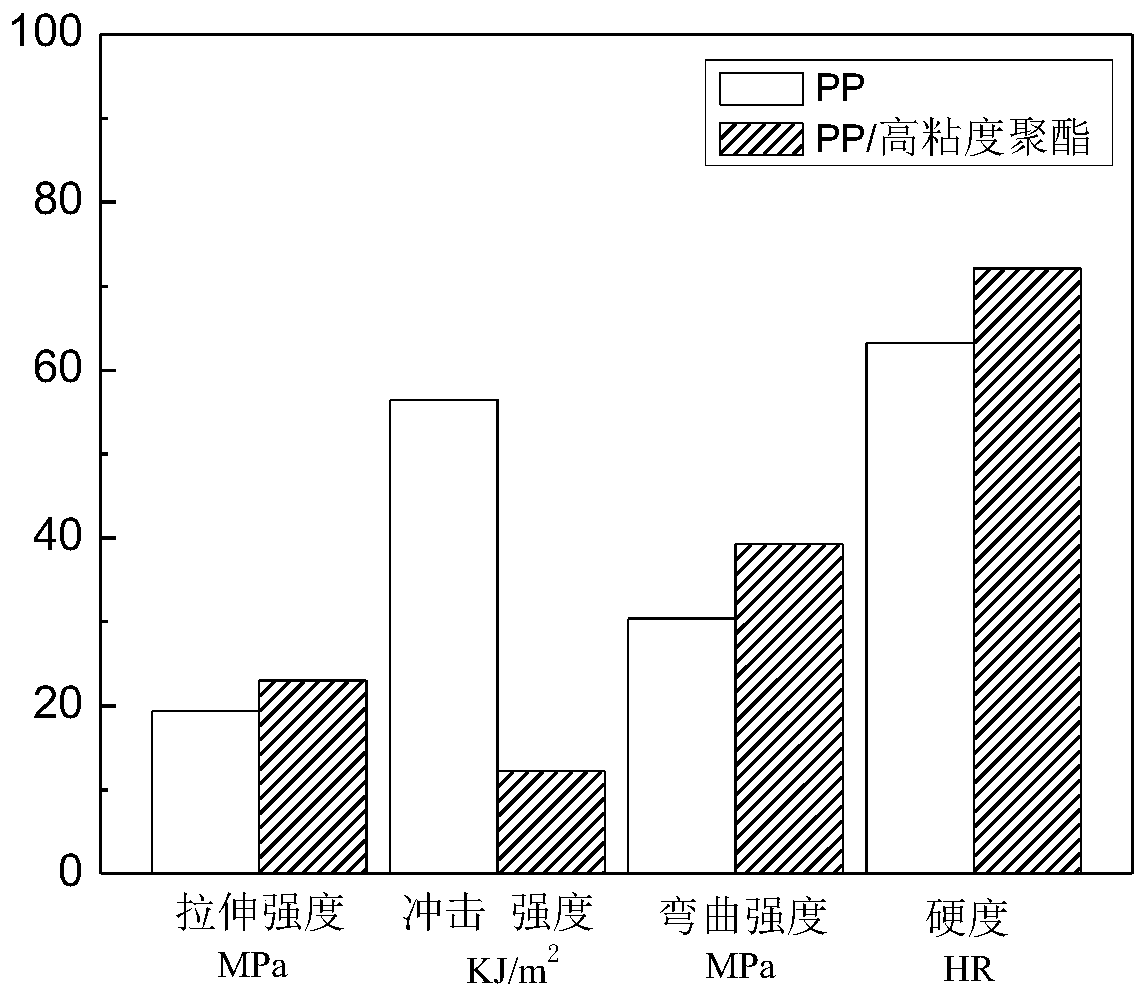Method for tackifying recycled polyester bottle flake by using chain extender and application thereof
A technology for polyester bottle flakes and polyester recycling, which is applied in the field of comprehensive utilization of polymer materials, can solve the problems of increased molecular weight of r-PET, high equipment requirements, and high investment costs, and achieves enhanced methods, reduced crystallization enthalpy, and high efficiency. Effect
- Summary
- Abstract
- Description
- Claims
- Application Information
AI Technical Summary
Problems solved by technology
Method used
Image
Examples
Embodiment 1
[0024] Using r-PET as the base resin, the torque rheometer is used for melt plasticization, and the chain extender TPP / ADR is added in proportion to the molten r-PET for chemical chain extension reaction. The specific preparation process is as follows:
[0025] Step 1: Clean the r-PET and blow dry it at 80°C for 6 hours, then put it into a high-speed multi-functional pulverizer, grind it for 3 minutes, and dry the fine r-PET particles in vacuum at 80°C for 12 hours. Hour;
[0026] Step 2: Add 100 parts of the processed r-PET particles into the torque rheometer, the temperature is controlled at 250°C, the speed is 40r / min, and the r-PET is fully melted after the torque rheometer runs for 4 minutes , adding a total of 1.65 parts of chain extender TPP / ADR (TPP / ADR is 1.5 parts / 0.15 parts), so that r-PET and the chain extender undergo a chemical chain extension reaction, take it out after 10 minutes, and obtain a high-viscosity polyester;
[0027] The third step: take by weighing...
Embodiment 2
[0029] Using r-PET as the base resin, the torque rheometer is used for melt plasticization, and the chain extender TPP / ADR is added in proportion to the molten r-PET for chemical chain extension reaction. The specific preparation process is as follows:
[0030] Step 1: Clean the r-PET and blow dry it at 80°C for 6 hours, then put it into a high-speed multi-functional pulverizer, grind it for 3 minutes, and dry the fine r-PET particles in vacuum at 80°C for 12 hours. Hour;
[0031] Step 2: Add 100 parts of the processed r-PET particles into the torque rheometer, the temperature is controlled at 250°C, the speed is 40r / min, and the r-PET is fully melted after the torque rheometer runs for 4 minutes , adding a total of 1.75 parts of chain extender TPP / ADR (TPP / ADR is 1.5 parts / 0.25 parts), so that r-PET and the chain extender undergo a chemical chain extension reaction, take it out after 10 minutes, and obtain a high-viscosity polyester;
[0032] The third step: take 0.125g drie...
Embodiment 3
[0034] Using r-PET as the base resin, the torque rheometer is used for melt plasticization, and the chain extender TPP / ADR is added in proportion to the molten r-PET for chemical chain extension reaction. The specific preparation process is as follows:
[0035] Step 1: Clean the r-PET and blow dry it at 80°C for 6 hours, then put it into a high-speed multi-functional pulverizer, grind it for 3 minutes, and dry the fine r-PET particles in vacuum at 80°C for 12 hours. Hour;
[0036] Step 2: Add 100 parts of the processed r-PET particles into the torque rheometer, the temperature is controlled at 250°C, the speed is 40r / min, and the r-PET is fully melted after the torque rheometer runs for 4 minutes , add a total of 2 parts of chain extender TPP / ADR (TPP / ADR is 1.5 / 0.5), make r-PET and chain extender chemical chain extension reaction, take out after 10min, obtain high viscosity polyester;
[0037] The third step: take 0.125g dried high-viscosity polyester with an electronic bala...
PUM
 Login to View More
Login to View More Abstract
Description
Claims
Application Information
 Login to View More
Login to View More - R&D
- Intellectual Property
- Life Sciences
- Materials
- Tech Scout
- Unparalleled Data Quality
- Higher Quality Content
- 60% Fewer Hallucinations
Browse by: Latest US Patents, China's latest patents, Technical Efficacy Thesaurus, Application Domain, Technology Topic, Popular Technical Reports.
© 2025 PatSnap. All rights reserved.Legal|Privacy policy|Modern Slavery Act Transparency Statement|Sitemap|About US| Contact US: help@patsnap.com



